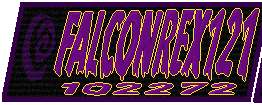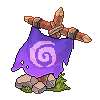Soooo, I always seem to have the issue of coming up with a cool idea for a story or a comic. However I suck at developing it further and actually establishing a story line.
And coming up with side stories to wind into it? ughhh it's so hard x-x
I really want to make my own comic at some point.
anyone have any tips for actually getting a solid plot established?
Tips on planning for comics as well? ^^
Soooo, I always seem to have the issue of coming up with a cool idea for a story or a comic. However I suck at developing it further and actually establishing a story line.
And coming up with side stories to wind into it? ughhh it's so hard x-x
I really want to make my own comic at some point.
anyone have any tips for actually getting a solid plot established?
Tips on planning for comics as well? ^^
@
Hiserus
I personally find that the story needs a point in order for me to be able to thoroughly finish it. You know, like a message. From there I just think "how should I convey the message?" and then story ideas come better.
@
Hiserus
I personally find that the story needs a point in order for me to be able to thoroughly finish it. You know, like a message. From there I just think "how should I convey the message?" and then story ideas come better.
For me, the best advice I'd give myself is to not be afraid to make bold changes. I cut out characters and change relationships and stuff all the time to make the story more cohesive.
For me, the best advice I'd give myself is to not be afraid to make bold changes. I cut out characters and change relationships and stuff all the time to make the story more cohesive.
If you feel really bored, start thinking. Cool fact ppl r more creative when bored
If you feel really bored, start thinking. Cool fact ppl r more creative when bored
meep
sometimes good ideas come to me at random times, so i write them down as soon as possible. i usually incorporate them into my story at some point, but you can add/remove/modify things in your concept if you don't like it anymore
It can be helpful to think of how you want it to start and end, and then start to piece together the middle of it all. Or even to split your story into sections, focus on one event or arc at a time.
Also utilise notes on your phone! If you're ever out and about and you get an idea or see something that inspires you type it down, or bring a notebook and sketch/write it down. Sometimes even the most random things can make an idea pop out. Personally, I get ideas for certain scenes and conversations that I want to include in my story but I don't know where to stick it! It's always good to have them written down somewhere so that you don't forget to eventually write them in.
If you get stuck on something move on to a different aspect of it. If your plot feels like it's hit a brick wall try focusing on character development for example, just as long as you don't hit that brick wall and stop.
It can also be helpful to think about how you want your characters and their relationships/attitudes/lives to development. How do you want them to change and grow and what in the plot is going to contribute to that? Is there an obstacle they need to overcome? How do their relationships with other characters impact them? Is there a moral or lesson you want them to learn?
Some people can work on the same story for years, it can take time to do these things! I have no doubt whatever you create will be interesting at the very least though!
It can be helpful to think of how you want it to start and end, and then start to piece together the middle of it all. Or even to split your story into sections, focus on one event or arc at a time.
Also utilise notes on your phone! If you're ever out and about and you get an idea or see something that inspires you type it down, or bring a notebook and sketch/write it down. Sometimes even the most random things can make an idea pop out. Personally, I get ideas for certain scenes and conversations that I want to include in my story but I don't know where to stick it! It's always good to have them written down somewhere so that you don't forget to eventually write them in.
If you get stuck on something move on to a different aspect of it. If your plot feels like it's hit a brick wall try focusing on character development for example, just as long as you don't hit that brick wall and stop.
It can also be helpful to think about how you want your characters and their relationships/attitudes/lives to development. How do you want them to change and grow and what in the plot is going to contribute to that? Is there an obstacle they need to overcome? How do their relationships with other characters impact them? Is there a moral or lesson you want them to learn?
Some people can work on the same story for years, it can take time to do these things! I have no doubt whatever you create will be interesting at the very least though!
Here's a helpful chart that can apply to almost every plot:
[img]https://i.imgur.com/HfSXVPu.jpg[/img]
Basically, to start a story, you need 3 things: A protagonist (main character or MC), an antagonist (challenges MC), and an inciting incident (thing that kicks off the plot). From there, everything else snowballs.
If you're stuck at a certain point in the plot, consider referring to the Hero's Journey:
[img]http://www.thewritersjourney.com/graphictwo.gif[/img]
If you're at step 3, for example, then your next move is to think of how your MC meets the character who will guide them through the rest of the plot. I recommend doing more research into each step specifically, this is a very brief summary.
Different writers have different ways of plotting. I think in some circles it's called 'planner or pantser'. Planners have every plot point and minor detail written down, pantsers just come up with it as they go. Neither is better than the other (one of my favourite authors, Garth Nix, admits that he pants his novels' worldbuilding, and it somehow ends up being ridiculously in-depth anyway), but it helps to know which one you fall into. I myself plot like this: I figure out my major plot points, like character deaths, betrayals etc, then impromptu everything in between, like what towns they pass through on the way, any shenanigans they may run into, things like that. Write up two short pieces using both methods, and see which one you prefer.
As someone who writes a ton of side stories and then goes 'what main plot?', I find it helps if your side characters are already fleshed out or have some significant event in their backstory. If the latter, you can write a piece about that event, and develop them further in the process. Again, remember to keep the plot structure in mind, or at the very least the 3 act structure (beginning-middle-end), otherwise they'd just be pointless drabbles.
Here's a helpful chart that can apply to almost every plot:

Basically, to start a story, you need 3 things: A protagonist (main character or MC), an antagonist (challenges MC), and an inciting incident (thing that kicks off the plot). From there, everything else snowballs.
If you're stuck at a certain point in the plot, consider referring to the Hero's Journey:

If you're at step 3, for example, then your next move is to think of how your MC meets the character who will guide them through the rest of the plot. I recommend doing more research into each step specifically, this is a very brief summary.
Different writers have different ways of plotting. I think in some circles it's called 'planner or pantser'. Planners have every plot point and minor detail written down, pantsers just come up with it as they go. Neither is better than the other (one of my favourite authors, Garth Nix, admits that he pants his novels' worldbuilding, and it somehow ends up being ridiculously in-depth anyway), but it helps to know which one you fall into. I myself plot like this: I figure out my major plot points, like character deaths, betrayals etc, then impromptu everything in between, like what towns they pass through on the way, any shenanigans they may run into, things like that. Write up two short pieces using both methods, and see which one you prefer.
As someone who writes a ton of side stories and then goes 'what main plot?', I find it helps if your side characters are already fleshed out or have some significant event in their backstory. If the latter, you can write a piece about that event, and develop them further in the process. Again, remember to keep the plot structure in mind, or at the very least the 3 act structure (beginning-middle-end), otherwise they'd just be pointless drabbles.






























